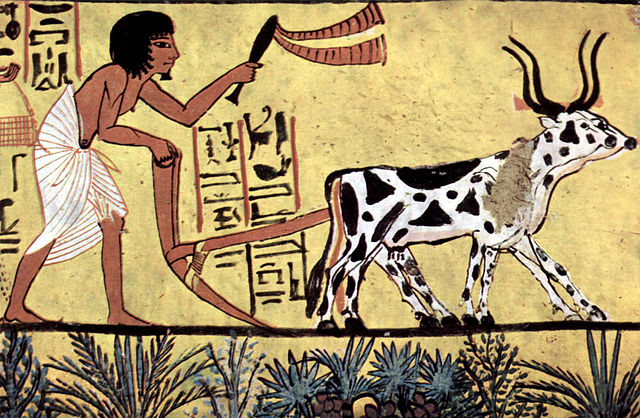The Problem of Agriculture

This is an excerpt from the new book Plain Radical: Living, Loving, and Learning to Leave the Planet Gracefully, published by Counterpoint/Soft Skull, which tells the story of Robert Jensen’s intellectual and political collaboration with teacher/activist Jim Koplin.
I was born and raised in North Dakota, a rural state with an economy that historically has been dependent on agriculture, but I knew virtually nothing about the hard work of farming—nor did I understand the way farming creates ecological crises—until I met Jim Koplin. At that time, like most people who labeled themselves as an environmentalist, I thought in terms of pollution in human communities and the need for wilderness preservation. Farming was, well, just something farmers did, not an ecological question. One of the most important contributions Jim made to my education was exposing me to a critique of the increasing industrialization of agriculture, which led me to recognize that there is no solution to environmental problems without facing the problem of agriculture.
That phrase—the problem of agriculture, instead of problems in agriculture—is taken from Wes Jackson, who points out that our species’ fundamental break with nature came roughly 10,000 years ago when we started farming. While gathering-hunting humans were capable of damaging a local ecosystem in limited ways, the shift to agriculture and the domestication of animals meant humans for the first time could dramatically alter ecosystems, typically with negative consequences. While there have been better and worse farming practices in history, soil erosion has been a consistent feature of agriculture, making agriculture the first step in the entrenchment of an unsustainable human economy based on extraction.
…click on the above link to read the rest of the article…